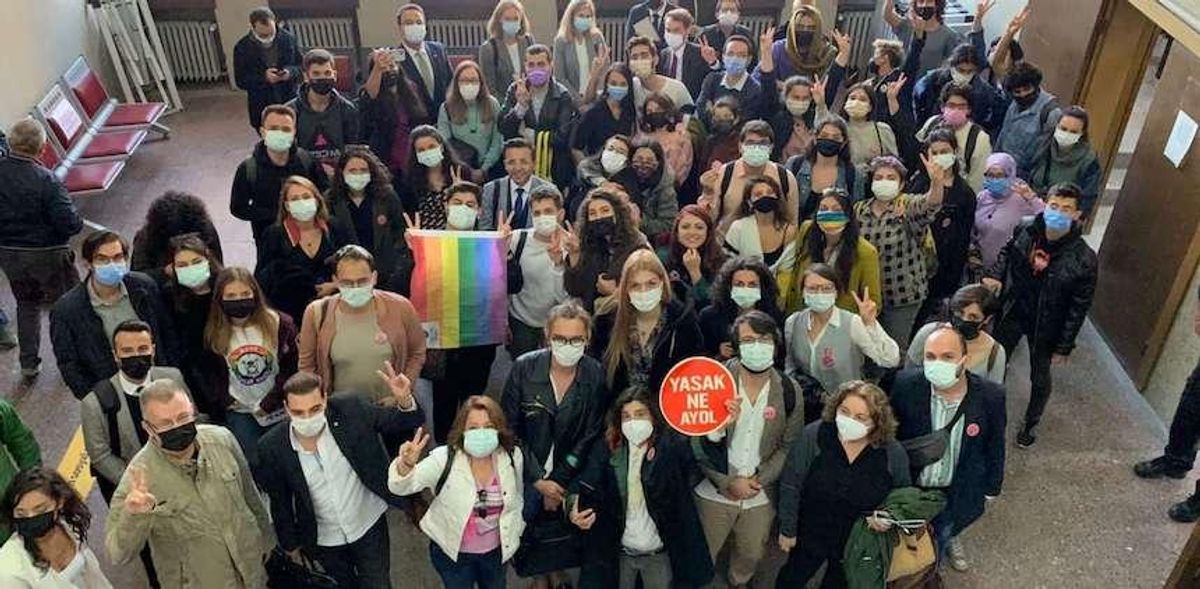A judge in Turkey's capital of Ankara has found that activists who participated in a university Pride march couldn't be held responsible for a crime since participating in Pride is not one.
Eighteen students and a professor who were previously detained, charged, and prosecuted over their participation at a Pride parade at Middle East Technical University (METU) in Ankara on May 10, 2019 were acquitted on Friday, according to a press release from the international LGBTQ+ rights group ILGA-Europe.
The participants had been charged with "participating in an unlawful assembly" and "failing to disperse despite being warned." They faced up to three years in prison if convicted.
"We would like to point out that from the very beginning, there should have been no trial at all, and now, with this precedent, we will continue to raise the LGBTI+ struggle," Ozgur Gur, a member of the rights UniKuir and one of the detained, said. "We thank everyone for their support."
Ankara banned LGBTQ+ events in 2017 under an emergency decree following a failed military coup. Local governments across the country used the decree to ban Pride marches. However, it was lifted a year later.
The university's Pride happened in May 2019.
LGBTQ+ rights have been eroded in Turkey for several years by a conservative government led by President Recep Erdogan. In 2014, the government banned Istanbul Pride, which used to draw thousands.
After the acquittal, defense lawyer Oyku Didem Aydin, while holding a rainbow flag in protest, said that freedom of expression was protected by the Turkish constitution, reported Reuters.
"What harm can this flag cause when I hold it in my hand? Does that mean I refuse to disperse despite a police warning? A student gets taken into custody simply for holding a flag," Aydin said.
He added that it was a shame that the young marchers had been made to look like criminals for years.
"We are very relieved to hear of the acquittal of the METU Pride LGBTI+ activists. It is very important for LGBTI+ people in Turkey, but also across the region, to see that, in a context of rising hate speech against LGBTI+ people by political and religious leaders, the courts and judicial processes protect the rights of all people to freedom of assembly, as enshrined in Turkish law and the European Convention on Human Rights, to which Turkey is party, and thus uphold the rule of law," ILGA-Europe's advocacy director, Katrin Hugendubel, said.



















































































